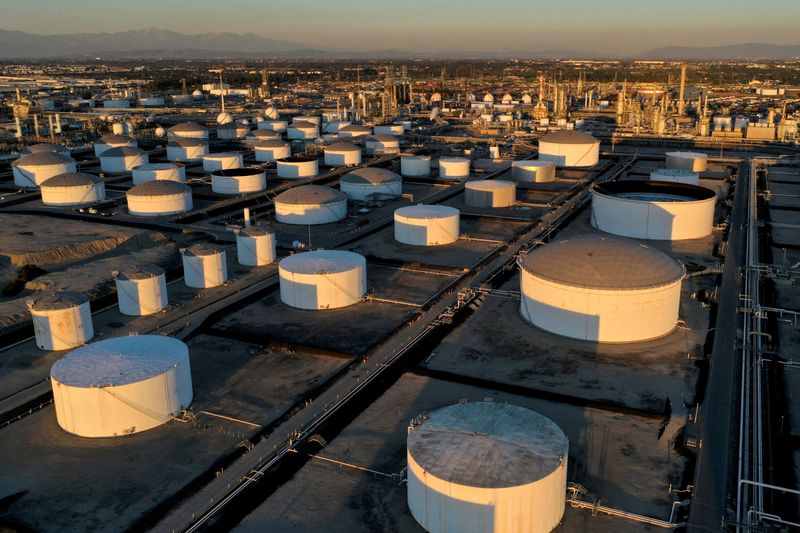By Laila Kearney
NEW YORK (Reuters) – Oil prices fell on Wednesday after an interest rate cut announcement by the Federal Reserve raised concerns about the health of the U.S. economy, while investors largely shrugged off a stock drop they attributed to the impact of short-lived weather.
Crude oil futures for November settled at $73.65 per barrel, losing 5 cents, while WTI crude oil futures for October settled at $70.91 per barrel, down 28 cents.
The U.S. central bank cut interest rates by half a percentage point, a bigger drop in borrowing costs than many expected, fueling concerns that the central bank may face a slowing labor market. Interest rate cuts tend to stimulate economic activity and energy demand, but a weaker labor market can slow the economy.
Meanwhile, crude inventories fell 1.6 million barrels to 417.5 million barrels in the week ended September 13, the Energy Information Administration (EIA) said, compared with analyst expectations in a Reuters poll ahead of a draw of 500,000 barrels.
The crude oil draw, which led to inventories falling to the lowest level in a year, helped limit price declines.
Although the EIA report provided more support for oil prices than Tuesday’s American Petroleum Institute data, investors likely linked the decline to Hurricane Francine, a short-lived event, said Bob Yawger, director of energy futures at the Mizuho couch.
“The problem with a ‘hurricane’ report is that the numbers tend to boomerang back in the opposite direction in next week’s report after the oil infrastructure comes back online,” Yawger said.
Meanwhile, gasoline and distillate stocks have risen slightly over the past week.
Brent has staged a recovery since September 10, when it fell below $70 to its lowest level since December 2021. It is meeting resistance around $75 due to weak global refinery margins that indicate sluggish demand, he added to it.

Earlier in the session, oil drew support from the risk of rising violence in the Middle East, disrupting supplies, after Hezbollah accused Israel of attacking the militant group with explosives-laden pagers in Lebanon. Hezbollah vowed to take revenge on Israel, whose army declined to comment on the blasts.
“The end of peak summer demand and a negative shift in traders’ sentiment contributed to the price decline, although potential conflicts in the Middle East still pose a risk of supply disruptions,” said Mazen Salhab, chief market strategist at MENA BDSwiss.


